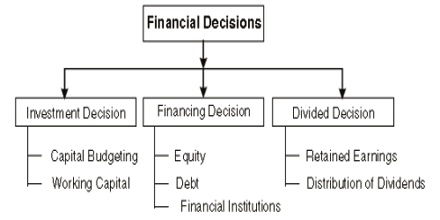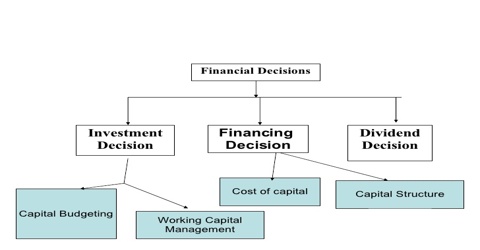Financing Decision
The Financing Decision is a critical assessment made by the financial manager relating to the financing-mix of an organization. It is concerned with the borrowing and allotment of funds required for the investment decisions. It involves identification of various available sources. The main sources of funds for a firm are shareholders funds and borrowed funds. Shareholder’s funds refer to equity capital and retained earnings. Borrowed funds refer to finance raised as debentures or other forms of debt.
A firm has to settle on the proportion of funds to be raised from either source based on their basic characteristics. Interest on borrowed funds has to be paid regardless of whether or not a firm has made a profit. Likewise, borrowed funds have to be repaid at a fixed time.

The risk of default on payment is recognized as financial risk which has to be considered by a firm likely to have inadequate shareholders to make these fixed payments. Shareholder’s funds on the other hand engage no pledge regarding payment of returns or repayment of capital. A firm, therefore, needs to have a judicious mix of both debt and equity in making financing decisions, which may be debt, equity, preference share capital and retained earnings.
In short terms, “Financing Decision” a judgment made regarding the method of raising funds that will be used to make acquisitions; it is based on an entity’s ability to issue and service debt and equity securities. Financing decision is, thus, concerned with the decisions about how much to be raised from which source. This decision determines the overall cost of capital and the financial risk of the enterprise.














